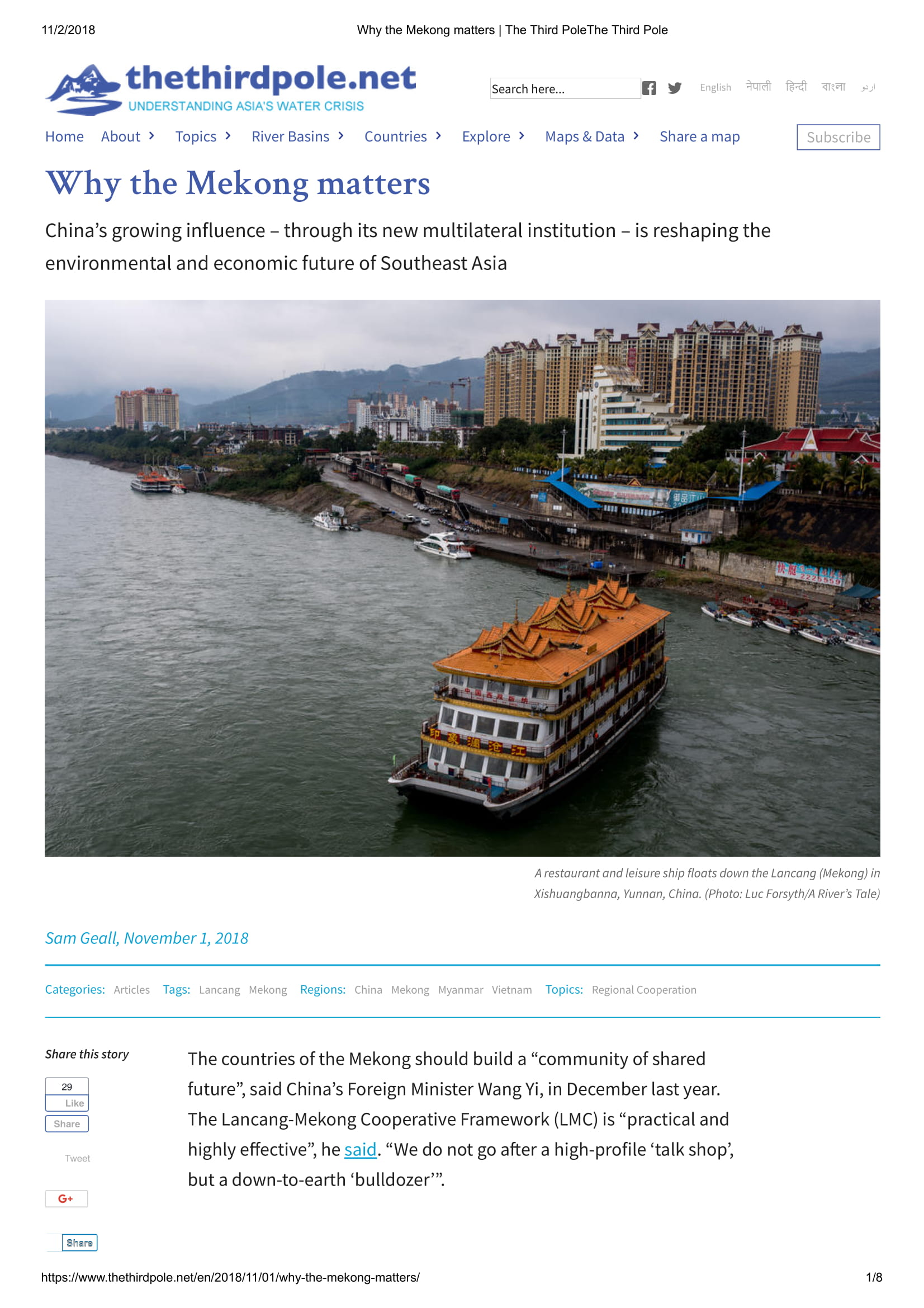IN THE NEWS: 'Why the Mekong matters'
/IN THE NEWS:
By Sam Geall [The Third Pole, 1 November 2018]
The countries of the Mekong should build a “community of shared future”, said China’s Foreign Minister Wang Yi, in December last year. The Lancang-Mekong Cooperative Framework (LMC) is “practical and highly effective”, he said. “We do not go after a high-profile ‘talk shop’, but a down-to-earth ‘bulldozer’”.
China has managed to cement its influence over the transboundary river in recent years, in a move that has important implications for the riverine environment and the people that rely on its resources. Its primary vehicle, or “bulldozer”, the LMC, will drive dam and development projects, special economic zones and trade.
It also illustrates China’s changing approaches to Southeast Asia – the central topic addressed recently in a policy forum The Third Pole and chinadialogue co-organised with the Centre for Social Development Studies (CSDS) and the Faculty of Political Science at Chulalongkorn University, in Bangkok.
Read more at this link here




